This past Tisha B’Av marked the beginning of the war in Caucasian Georgia. Georgia’s pro-American regime invaded its rebellious province of South Ossetia that prefers to remain loyal to Russia. The Russians reacted with wrath and lightning swiftness, dealing the Georgians a double dose of punitive retribution. At the time of this writing, there’s a ceasefire on paper, but Russian troops are firmly entrenched on Georgian soul with a daily promise of a pullout “tomorrow”. Russia’s President Medvedev (Russian for “son of a bear”) has declared that Georgia can forget about her pre-conflict borders. Not only will Russia maintain its presence in the separatist provinces of South Ossetia and Abkhazia, but it will undoubtedly create an expansive buffer zone at Georgia’s expense.
Meanwhile, the American eagle flaps its wings, screams and protests, but it doesn’t dare confront the thick-skinned cold-blooded Russian bear. The bear has aroused from its post-Perestroika
[1] slumber and has reverted to its traditional self – the cruel and heartless Russia that couldn’t care less what the West has to say.
One must seriously question Georgian President Mikhail Saakashvili’s powers of judgment. How did he dare invade South Ossetia? Didn’t he realize that the Russians would jump at the chance to settle old accounts with his pro-Western regime? Saakashvili’s failure to properly assess his country’s true capabilities and vulnerabilities was doubly tragic. First, he never believed that Russia would give Georgia such a beating. Second, he was absolutely positive that the Americans would intervene militarily on his behalf, at least covertly if not overtly.
America didn’t lift a military pinky finger to assist the devastated Georgians. All Georgia got from America were several plane loads of humanitary “relief” – wool blankets, band aids, and Hershey bars. Meanwhile, Georgia continues to lick her wounds.
Many pieces are still missing in this Georgian jigsaw puzzle. At present, we only discern a partial image at best, but it looks to me like this puzzle will be a picture of the Geula, the full and imminent redemption of our people, may it be soon, amen.
Anyone that can’t see the Geula fast on its way would be well-advised to schedule an appointment with a reliable optometrist. After nearly two decades of relative calm from a global standpoint, as if the superpowers tacitly agreed on coexistence, the American Eagle and the Russian Bear once again face each other in a showdown.
American missiles on Polish and Ukrainian soil are a bone in the bear’s throat. Nevertheless, the Georgian confrontation with the razor-sharp teeth and claws of the ruthless Russian bear indicates that the bear is much more ferocious that the hapless American eagle that’s avoiding direct confrontation at all costs, including readily expendable Georgian blood. Russia does what it wants when it wants. America turns a blind eye to the blood of its allies. The red, white, and blue backbone is no match for the Kremlin’s iron jaws.
What does all of this mean from a spiritual perspective?
King Solomon, the wisest man that ever walked the face of the earth, said (Ecclesiastes 1: 9-10), “And there is nothing new under the sun…this already happened in the eras that preceded us.” In other words, according to King Solomon, we’ve seen the Georgian screenplay many times before on a different stage and with different actors. Nevertheless, the script is the same.
When? Where?
Let’s preface our answer with the words of the Midrash (Song of Songs, 2:6), namely, that Hashem created the world for His people Israel, as we see in the following parable:
A great king had an orchard. He ordered his nurserymen to plant a row of figs, a row of grapevines, a row of pomegranates, and a row of apples. He then entrusted the orchard to the care of a lazy caretaker. Several months later, the king inspected the orchard and found it unkempt and overgrown with thistles and weeds. The fuming monarch almost gave the order to destroy the orchard and chop down all the trees when he discovered a lone fragrant red rose among the weeds and the thorns. The beauty of the rose warmed the king’s heart and its fragrance calmed and delighted the king’s soul. The king said, “By virtue of this rose, I shall spare the orchard.” In like manner, says the Midrash, by virtue of Israel, Hashem spares the entire world.
The king is symbolic of Hashem, who loves His people Israel so much that He is willing to teach them necessary lessons in life at the expense of others.
Imagine a king whose son the prince drank too much wine on occasion. The king chose not to punish the prince for the time being. One day, one of the palace guards was caught drinking a tiny cup of wine while on duty. The unfortunate guard was brought before the king and sentenced to forty lashes in the palace courtyard where everyone could see. The stunned prince saw how badly the guard was punished for drinking a small cup of wine and realized that he himself deserves a much more severe punishment. Then and there, he decided never to touch wine again in his life. As such, the clever king succeeded in educating his beloved son the prince at someone else’s expense.
Everything Hashem is doing in Georgia – and everywhere else – is a message for His nation in Zion and another piece in a grand puzzle. It’s our responsibility to put those pieces together, understand the message, and to see the big picture.
Three prophets – Isaiah, Jeremiah, and Ezekial – pleaded that Israel mend her ways and return to Hashem in the period that directly preceded the Babylonian invasion and the destruction of the First Holy Temple in Jerusalem. Both Judea’s and Israel’s wicked kings thought they could outmaneuver Hashem and His prophets by signing a mutual defense pact with Egypt against Assyria and Babylon. Jeremiah (12:13) rebuked the nation of Israel and said, “You shall be ashamed of your grain harvest.” In other words, your evil deeds will yield weed seeds and not grains of wheat. Our great biblical commentator the Radak explains, “This is metaphoric of the masses who appealed to the kings of Egypt for help against the king of Babylon and thereby placed their trust on a wobbly reed.”
Ezekial rebukes Israel in a direct manner for relying on Egypt and says in the Name of G-d that when people lean on anything except on Hashem, then Hashem destroys the object they lean on. Hashem declares (Ezekial 29:6), “And all of Egypt shall know that I am G-d for they have been a leaning-reed for the House of Israel.” Rashi explains, “on several occasions, they [Israel] depended on them [Egypt], during the days of Sennaherib and during the days of Nebuchadnezzar, and the reed was of no use to them since it [the reed] is soft and does not support anyone that leans on it.” In Rashi’s elaborations of Kings II (18:21), he adds that not only is the reed [Egypt] a weak and wobbly leaning stick, but when it splits, its splinters puncture the palm of whoever leaned on it.
The entire conflict in Georgia is a message for us, the people of Israel, much like the guard’s punishment was a message to the prince. Hashem doesn’t want us to lean on America or on any other wobbly reed. All the threats against us from Iran, Syria, the Hizbulla and the Hamas are simply timely wake-up calls to stimulate our soul-searching, teshuva, and self-improvement.
Unfortunately, instead of making teshuva our first and utmost national priority, the Government and all of its political parties – right, left, center, secular and so-called religious – have a sixty-year tradition of seeking American help rather than turning to Hashem with true teshuva and prayer. This is striking remindful of Israel’s dependence on Egypt for the destruction of the First Temple, and certainly not what Hashem wants.
Hashem is showing us – at the expense of Caucasian Georgia – how America is none other than a wobbly reed that’s dangerous to lean on. We must have enough spiritual awareness to realize that Georgia is none other than a message for us. As such, the puzzle picture becomes quite clear: once we discard all the wobbly reeds we leaned on and return to Hashem with all of our hearts – leaning only on Him – the Hashem will disperse our enemies and lead us with uplifted heads to greet Moshiach in our rebuilt Holy Temple, speedily and in our days, amen!
* * *
[1] Governmental reforms in the USSR the late 1980s, brought about when Mikhail Gorbachev came into power. "Perestroika" means "restructuring." Perestroika was a political and economic policy designed to revitalize the Soviet economy and enable more free trade. The reforms were supposed to improve Soviet life, but that didn't really happen. The openness just made people want more freedoms, and the restructuring has led to mafia rule rather than true economic reform. Leaders such as Putin and Medvedev yearn for a return to old-time Russian iron-fist values.
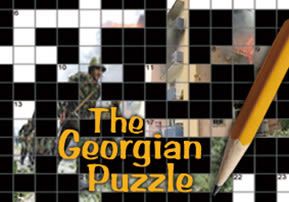





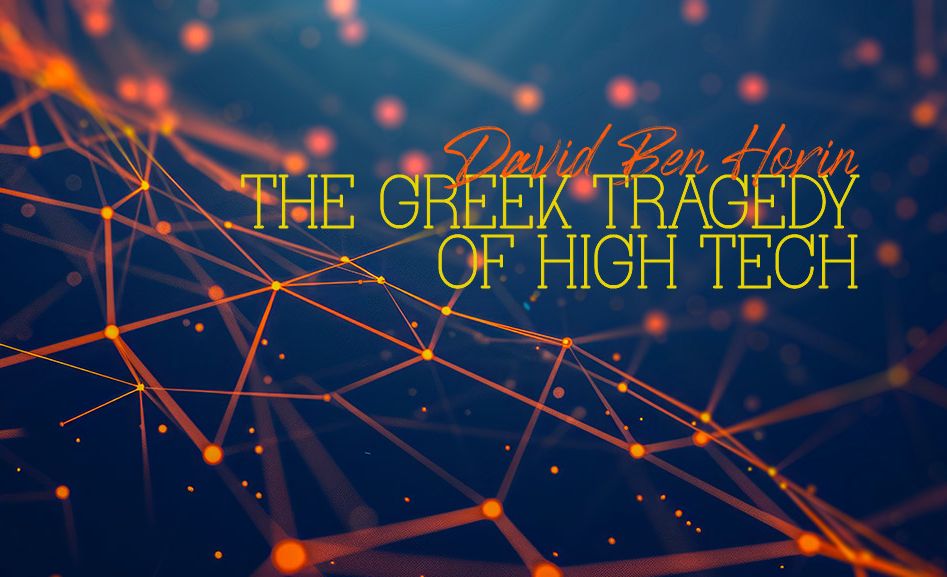
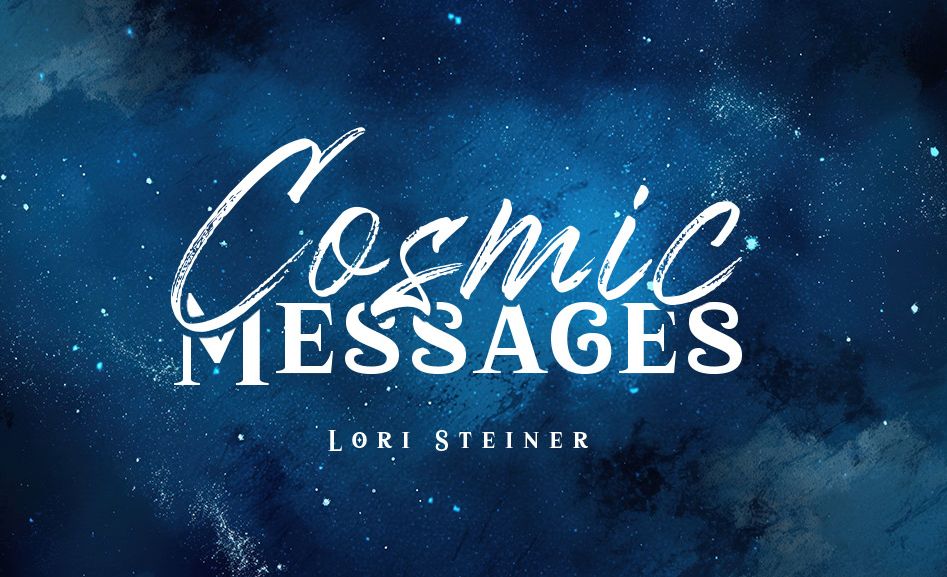


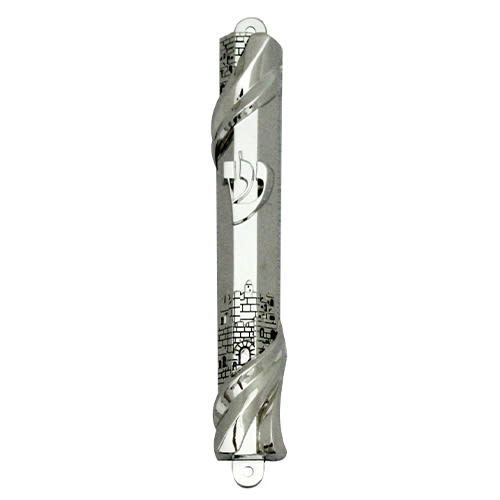

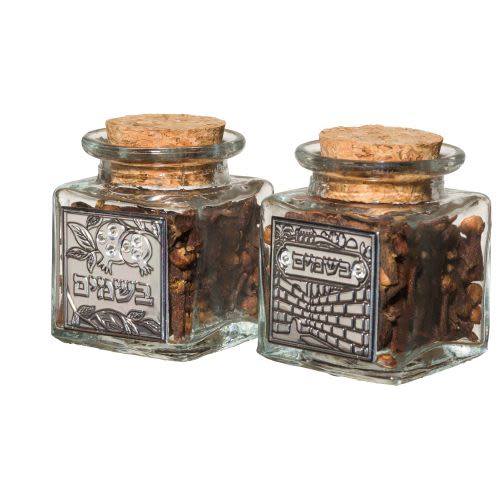
Tell us what you think!
Thank you for your comment!
It will be published after approval by the Editor.